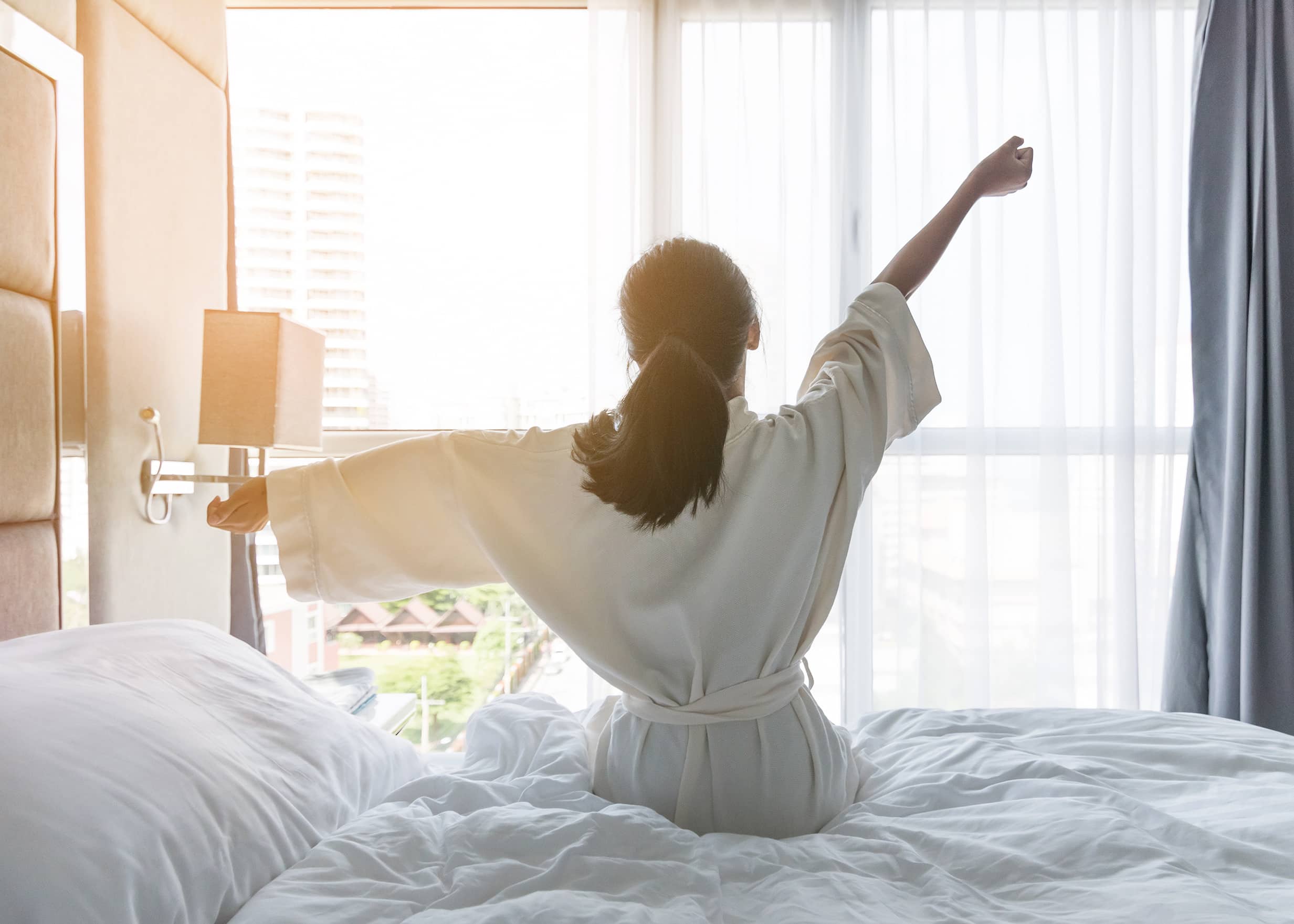Have you ever snapped at anyone, not knowing where it’s come from, soon after remembering the short night’s sleep you got the night before?
Sleep is so important not just for our ability to regulate our emotions but in many other areas. Sleep is a hugely important factor when it comes to our function in general. Sleep is the time frame in which our bodies get time to rejuvenate and replenish. However, sleep issues and deprivation are increasingly a problem in today’s fast-paced society.
Sleep problems, or disorders, encompass various conditions that disrupt individuals’ standard sleep patterns and overall sleep quality. These issues can manifest in various forms, such as insomnia, sleep apnea, restless leg syndrome, narcolepsy, and parasomnias.
Sleep problems affect not only the quantity of sleep one gets but also the quality, leading to daytime fatigue, decreased cognitive function, mood disturbances, and impaired overall well-being.
The causes of sleep problems are multifaceted, including factors like stress, lifestyle choices, medical conditions, and even genetic predispositions. Addressing sleep problems is crucial, as healthy and restorative sleep is essential for physical health, cognitive functioning, and emotional balance. Effective options often involve a combination of lifestyle adjustments, behavioural therapies, and, in some cases, medical interventions to help individuals regain a restful and rejuvenating sleep pattern.
“There is a time for many words, and there is also a time for sleep.” – Homer, The Odyssey.
According to the NHS, in September 2021, it was estimated that a third of the population in the UK regularly suffers from sleep issues or insomnia. Fortunately, there are many ways you can get a hold of your sleep issues and restore the harmony of body and mind.
What Happens If You Don’t Get Enough Sleep?
When we’re tired, our fuse is shortened, and it can be easy to become frustrated at a partner or family member. As well as short-term effects that you may be aware of, there are longer, more serious implications, too.
Insufficient sleep in the short term causes fatigue, mood changes, lack of focus, and reduced cognitive abilities. This can lead to issues with your work performance and potentially cause accidents due to impaired judgment or slowed reaction times. A lack of sleep can have hazardous consequences for people who drive or operate machinery.
Chronic sleep deprivation leads to other issues. It heightens the risk of developing health problems such as obesity, diabetes, cardiovascular disease, and even certain types of cancer.
Though many people enjoy a good night’s sleep, they don’t always realise that regularly disrupted sleep and insomnia weaken the immune system, making the body more susceptible to infections. Sleep problems also exacerbate mental health issues, contributing to the development of depression, anxiety and neurodegenerative diseases like Alzheimer’s.
So, what are the things you can do in order to get a good night’s sleep?
Overcoming Sleep Problems
The first step you’ll want to take is to discover what’s causing the sleep issues. An example of this is insomnia, which is associated with stress, anxiety, or depression. It can be trickier to consider how irregular sleep patterns are also affected by our lifestyle choices, such as caffeine consumption, alcohol, late-night tech use, and lack of physical activity.
Let’s explore our options further.
Lifestyle Modifications
Tackling sleep problems starts with changing some of our lifestyle habits. You might not want to hear this, but setting a regular sleep schedule, meaning going to bed and waking up at the same time daily, really helps regulate our internal body clock (the circadian rhythm). It’s essential to keep to this even on weekends. Why? Maintaining a similar schedule throughout the week makes it easier to fall asleep and increases sleep quality.
Screen time is another significant contributor to sleep issues. Yes, that blue light emitted by your phone and laptop screens reduces your secretion of melatonin, the sleep-inducing hormone. This disrupts your sleep cycle. What will help is turning off your electronic devices at least an hour before bedtime.
Getting some exercise helps you have better sleep. A significant reason for this is that regular exercise reduces stress and anxiety levels, often underlying causes of sleep problems. However, remember that avoiding vigorous exercise near bedtime is important as it can make falling to sleep trickier for some.
So what about food? Eating habits have a massive effect on our sleep patterns. Heavy meals or caffeine close to bedtime disrupt your ability to fall asleep. Maintaining a balanced diet where possible is essential, and avoiding caffeine and alcohol, especially in the evening.

Relaxation
How do you unwind? Do you have go-to activities that relax you? That eases stressful thoughts and brings you back to the present and just being in your body.
Having relaxation activities as a solid part of your life helps manage stress and anxiety, enhancing sleep quality. Deep breathing, progressive muscle relaxation, and visualisation are helpful ways to promote sleep and can be done just before bedtime.
Meditation and mindfulness are also beneficial. They involve focusing on your breath, noticing your thoughts without judgment, and promoting a sense of calm.
Sleep Environment
Many people have a television in their bedroom, their phone to hand at all times, or perhaps bring paperwork to bed.
An often-overlooked factor causing sleep problems is the sleep environment. A comfortable mattress and pillows, a dark and cool room, and limiting noise significantly improve sleep quality. Additionally, only using your bed for sleep can help to condition your mind to associate the bed with sleep.
Professional Help
If sleep problems persist, it’s advisable to seek professional help. Therapies are beneficial and work by changing unhelpful thoughts and behaviours, contributing to sleep problems.
Via your GP, you can also learn about sleep clinics for conditions such as sleep apnea, restless legs syndrome, and narcolepsy.
How Therapy Helps
Talking therapies, encompassing various psychotherapeutic approaches, serve as a highly beneficial tool for those grappling with sleep disorders. Leone Centre offers a supportive environment where you can delve into and tackle the underlying mental or emotional issues that impact your sleep, such as stress, anxiety, or depression.
Through these therapeutic conversations, you become aware of the unhelpful thought patterns and behaviours that may be contributing to your sleep problems. The therapist guides you towards developing healthier attitudes and routines around sleep.
With this in-depth, root-cause approach to addressing sleep disturbances, talking therapies provide a longer-lasting and comprehensive approach to sleep problems.

The Gift of Sleep
The journey to overcoming sleep problems is personal, varying from person to person. You’ll want to restore harmony – to realign your lifestyle, mind, and body towards the desire for restful sleep. It’s a journey worth embarking upon, for the gift of sleep is immeasurable. It provides physical rest and brings mental clarity, emotional balance, and well-being. It is the lullaby that soothes the chaos of our daily lives.
Remember, a good night’s sleep is not a luxury; it’s a necessity. Embrace the silence, surrender to the tranquillity, and let the restorative power of sleep guide you to a healthier, happier life.
- About the Author
- Latest Posts
Co-founder and director of Leone Centre, 20+ years of experience supporting people, and offering valuable knowledge through Couples Counselling and Individual Counselling. Before becoming a therapist, I worked in the financial sector.

Get Started Today
with Leone Centre

BOOK NOW

Call us
020 3930 1007

View our therapists
Find your match


